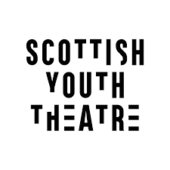In the new piece of poetry theatre playing this week at Drayton Arms, a young woman copes with loneliness in part by getting possessed by a jungle cat. We talked to writer and performer Capucine Earle about her play.

How would you describe your show?
I’m constantly trying to figure that out myself. I think this show is very much an exploration of the organic sensitive heart versus rough mechanical urban demands, and what is asked of us from society as a young woman. It’s a clown, poetry and day-in-the-life piece, more specifically it’s the journey of this woman who gets swept away by her childhood self and hones in on her lineage (grandmother, mother, her). Her childhood self just happens to be a clown leopard that speaks in verse (very common).
What was the writing process?
The seed of it is a poem about my grandmother, her mother, and my mother. And writing poetry with the freedom that I had when I used to hide and put on my leopard costume after school, and how life now feels like the complete opposite of that. How can that coexist, and contract and expand to its limits in a limited time line? But also, just writing a piece that I’d love to see, writing a piece that I’ve never seen before, that I don’t know how to do, and that I can keep discovering how to, and that only makes sense with other hearts being in the room watching it.
Why is your character possessed by a leopard rather than another animal?
I would have to ask my childhood self what this obsession with her costume was. It was a very private, I don’t know, I don’t even have pictures it was so private. But my mom still cackles about those years where I was a leopard. I guess I loved the paws and the little cap that I had. I wasn’t ferocious, I was a shy girl. I wasn’t ferocious like a lion, I wasn’t driven like a tiger, I was shy and silly like a leopard.
Are there challenges in writing a personal piece in a language other than how those memories were originally experienced?
It is my first piece in English, and I was trying to find this play on words that we can get in the French language. In quebecois theatre, the language is very free and very playful, like you can disarm and punch through wordplay, it’s quite specific in its approach to language. That was a challenge to try to find in a Germanic language which is more literal, but the poetry helps for that, especially juxtaposed against the dialogue.
What do you hope people take away from your play?
I hope that through the piece’s specificity it can connect to the whole; I hope to break down the walls that are built up by a world that makes us work for shelter and food, work to survive, and gives not a lot of time and space for feelings of heartbreak, of grief, of joy, of silliness. Also, leopard is in vogue.
Petit Léopard is playing at Drayton Arms on 30 September at 7:30pm and 1 October at 3pm and 7:30 pm.

























